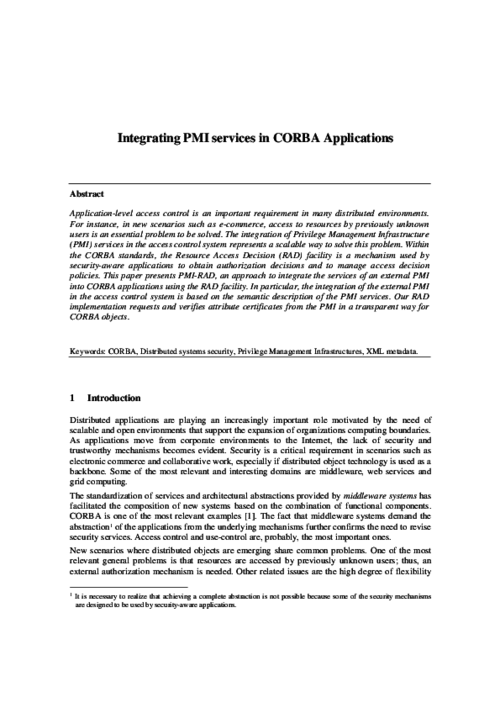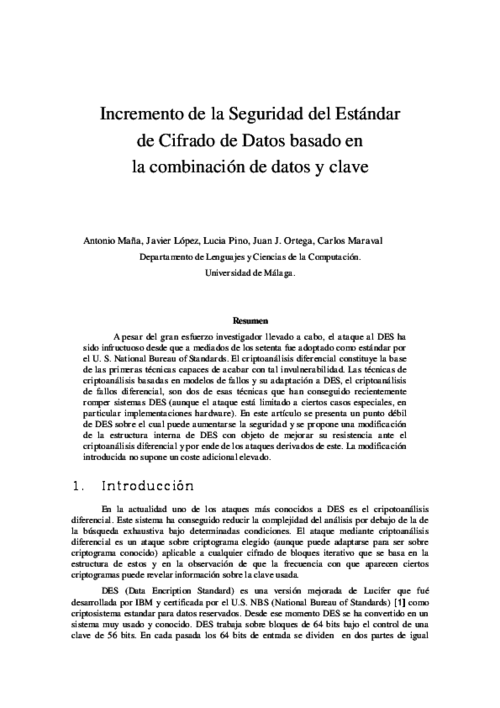 ]
] Computer Standards & Interfaces, vol. 25, no. 4, pp. 391-409, 2003.
Abstract
Application-level access control is an important requirement in many distributed environments. For instance, in new scenarios such as e-commerce, access to resources by previously unknown users is an essential problem to be solved. The integration of Privilege Management Infrastructure (PMI) services in the access control system represents a scalable way to solve this problem. Within the CORBA standards, the Resource Access Decision (RAD) facility is a mechanism used by security-aware applications to obtain authorization decisions and to manage access decision policies. This paper presents PMI-RAD, an approach to integrate the services of an external PMI into CORBA applications using the RAD facility. In particular, the integration of the external PMI in the access control system is based on the semantic description of the PMI services. Our RAD implementation requests and verifies attribute certificates from the PMI in a transparent way for CORBA objects.

III Jornadas de Informática y Automática, pp. 423-432, Julio, 1997.
Abstract
A pesar del gran esfuerzo investigador llevado a cabo, el ataque al DES ha sido infructuoso desde que a mediados de los setenta fue adoptado como estándar por el U. S. National Bureau of Standards. El criptoanálisis diferencial constituye la base de las primeras técnicas capaces de acabar con tal invulnerabilidad. Las técnicas de criptoanálisis basadas en modelos de fallos y su adaptación a DES, el criptoanálisis de fallos diferencial, son dos de esas técnicas que han conseguido recientemente romper sistemas DES (aunque el ataque está limitado a ciertos casos especiales, en particular implementaciones hardware). En este artículo se presenta un punto débil de DES sobre el cual puede aumentarse la seguridad y se propone una modificación de la estructura interna de DES con objeto de mejorar su resistencia ante el criptoanálisis diferencial y por ende de los ataques derivados de este. La modificación introducida no supone un coste adicional elevado
